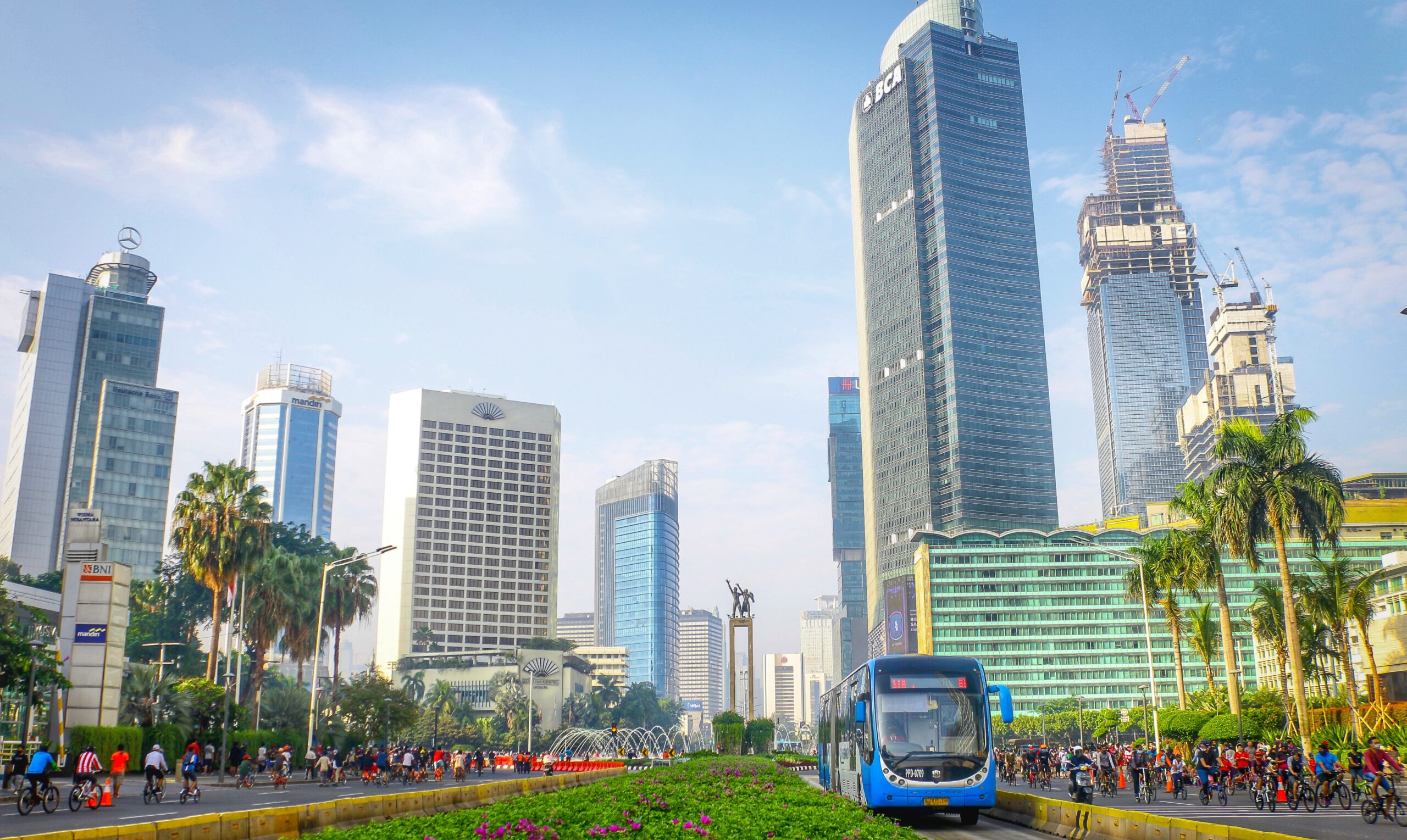Jakarta, the bustling capital of Indonesia, stands as a vibrant metropolis that encapsulates the dynamic spirit of this diverse archipelagic nation. As the political, economic, and cultural heart of Indonesia, Jakarta is a melting pot of traditions, modernity, and a testament to the nation’s progress. From towering skyscrapers to historic landmarks, Jakarta offers a kaleidoscope of experiences that reflect the multifaceted nature of the country.
One of Jakarta’s defining features is its juxtaposition of tradition and modernity. In the historic district of Kota Tua, also known as Old Batavia, visitors can step back in time and explore Dutch colonial architecture, including the iconic Fatahillah Square. The Jakarta History Museum, housed in the former City Hall, provides insights into the city’s past, featuring exhibits on the colonial era and the struggles for independence.
The National Monument, or Monas, is an iconic symbol of Jakarta and Indonesia’s fight for independence. Standing at 137 meters (450 feet) tall, Monas commemorates the country’s declaration of independence in 1945. Visitors can take an elevator to the top for panoramic views of the city or explore the surrounding Merdeka Square, a vast public space often used for national celebrations and events.
Jakarta is home to a diverse range of cultural and religious sites that reflect the nation’s pluralistic identity. Istiqlal Mosque, the largest mosque in Southeast Asia, stands as a symbol of religious tolerance and unity. Adjacent to the mosque is Jakarta Cathedral, a neo-Gothic Catholic cathedral, highlighting the coexistence of different faiths in the city.
For art enthusiasts, Jakarta offers a thriving arts and cultural scene. The National Gallery of Indonesia, located in the heart of the city, showcases a vast collection of Indonesian paintings and sculptures, providing a comprehensive overview of the nation’s artistic heritage. The Jakarta Arts Theater, known as Taman Ismail Marzuki, hosts various performances, exhibitions, and cultural events throughout the year, contributing to the city’s vibrant cultural landscape.
The city’s culinary scene reflects the diversity of Indonesian cuisine, with street food stalls, warungs (local eateries), and upscale restaurants offering a wide array of flavors. Jakarta’s street food is renowned for its rich and savory dishes, including nasi goreng (fried rice), sate (grilled skewers), and ketoprak (rice cake with tofu and peanut sauce). The lively atmosphere of street markets and food vendors invites locals and visitors alike to indulge in the authentic tastes of Indonesian cuisine.
Shopping enthusiasts can explore Jakarta’s numerous malls and markets, catering to a range of tastes and budgets. From high-end shopping destinations like Plaza Indonesia and Grand Indonesia Mall to the vibrant markets of Pasar Tanah Abang and Mangga Dua, Jakarta provides a diverse shopping experience. Tanah Abang, one of the largest textile markets in Southeast Asia, is a bustling hub where visitors can find a plethora of fabrics, clothing, and accessories.
Jakarta’s nightlife is dynamic and diverse, with entertainment options ranging from traditional performances to trendy nightclubs. Kemang, a popular expatriate and local hangout, offers a vibrant nightlife scene with bars, cafes, and live music venues. The city’s upscale neighborhoods, such as Senopati and SCBD (Sudirman Central Business District), boast rooftop bars and sophisticated lounges where patrons can enjoy panoramic views of the cityscape.
Despite its urban hustle and bustle, Jakarta provides green spaces for relaxation and recreation. Taman Mini Indonesia Indah (Beautiful Indonesia in Miniature), a cultural park showcasing the diversity of Indonesia’s provinces, offers a refreshing escape from the city. Ancol Dreamland, situated along Jakarta’s waterfront, features a theme park, aquarium, and recreational beach, providing a family-friendly environment for leisure and entertainment.
Jakarta’s transportation network, including buses, commuter trains, and the TransJakarta Bus Rapid Transit system, facilitates mobility within the city. The city’s architectural landscape is characterized by a mix of colonial structures, modern skyscrapers, and traditional Indonesian designs, creating a visual tapestry that reflects its historical evolution.
In conclusion, Jakarta serves as a dynamic gateway to Indonesia, offering a multifaceted experience that combines tradition with modernity. The city’s cultural richness, diverse culinary offerings, and vibrant urban life make it a captivating destination for those eager to explore the complexities and contrasts of this sprawling metropolis at the heart of Southeast Asia.

